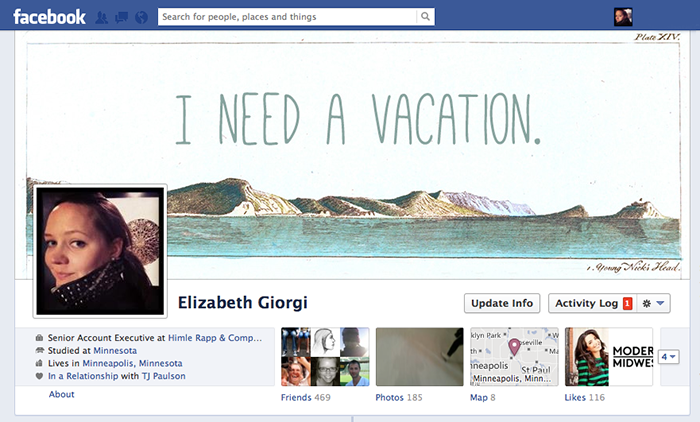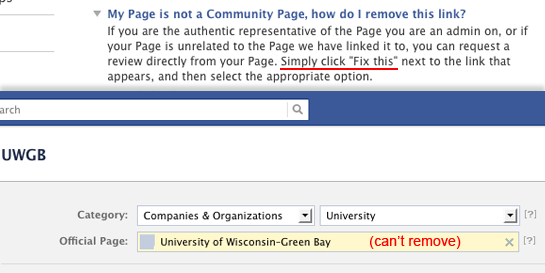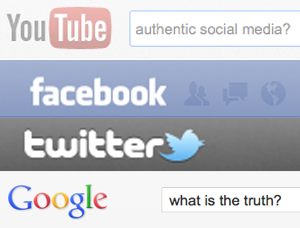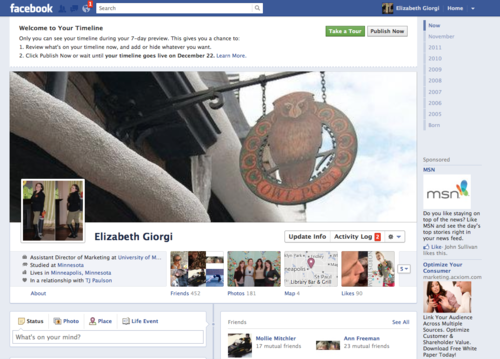Sometimes I have the overwhelming urge to be honest. Apparently, so does everyone else on Facebook. So let’s embrace that idea for a moment.

If you are ever in need of some really cool art that’s totally free and lives in the public domain, check out Vintage Printable. They provide high quality, free, public domain/out-of-copyright images for you to print or download. Most of them are sciency or earthy, but there’s literally thousands and thousands of cool images there. I’ve downloaded a few of my favorites, mocked them up in photoshop with some whiz-banging text that seemed appropriate and came up with some awesome new Facebook Timeline Banners that you can download and use for Freeezzzie. Pretty cool, right?
(Source: Diseases of the Eye 1838)
(Source: Bird Carrying Juvenile Girl)
(Source: Illustration of the Australian Seascape)
I hope you enjoy them. Why not spread some honesty in a non-ranty, non-TMI way? I’ve already got several likes on my new banner. (I chose the Vacation one…)
 There are some people in social media management roles on the interwebs buzzing about the fact that their “official pages" were ousted overnight and turned into “community pages" without their consent.
There are some people in social media management roles on the interwebs buzzing about the fact that their “official pages" were ousted overnight and turned into “community pages" without their consent.
Apparently, Facebook used “name matches" from the Wikipedia based community pages that I’ve seen here and there for companies and institutions that haven’t created official pages. They’ve outlined a way to prevent the merging in their FAQ’s, but many are reporting that it doesn’t work. For example, here’s details from the University of Wisconsin-Green Bay:
"If you believe your page is NOT a community page, you can remove the link… unfortunately, the directions facebook provides are flawed. There is no “Fix this” to click. AND upon attempting to remove the link to the new “official” page, your efforts are rewarded by it defaulting back after you click the “Save Changes” button."
It’s not the first time that Facebook has made a change without alerting users and page managers, but the pages I manage haven’t seen this issue just yet.
How about you? Have you noticed any issues?
Livia Scott’s music video, I Like You Better on Facebook, is truly funny and starting to catch on all over the place. It did get me thinking about a conundrum I find myself that’s the exact opposite of Livia’s problem: I start to dislike people that I genuinely enjoy in real life, because of their annoying Facebook posts. Maybe we need to petition Livia to do that video too?
I’m sure people find this to be true with potential suitors all the time (full disclosure: I’ve had a boyfriend for 4.5 years and we didn’t become Facebook friends for several weeks after we started dating, so I have no experience with this…) You know the types though:
1. Long lost college friends who have gotten married, had children and endlessly tell you all about every damn detail of this new life of theirs.
2. High school classmates whose name you wouldn’t even remember if not for the fact that Facebook gives you a visual reminder of who they are.
3. Co-workers who endlessly post their political views.
4. The bragger. Also known as the annoying self-promoter.
5. The ambiguously passive aggressive friend.
The list could really go on and on and on. I think Jimmy Kimmel had the right idea with National Unfriend Day.
 Social media has been pretty popular for years, but it was never so integrated into the day to day operations of my job as it is now. Why? Because everyone and their mother wants a “Social Media Plan" for their newest project.
Social media has been pretty popular for years, but it was never so integrated into the day to day operations of my job as it is now. Why? Because everyone and their mother wants a “Social Media Plan" for their newest project.
I’m not about to go on a tirade against communications plans, I promise you that. I do however want to share a few thoughts about why a “plan" oftentimes does you and your company a disservice when trying to market something via social media.
Why? Because a “plan" focuses on the things you can control. A “plan" accounts for the information that you push into the web. A “plan" doesn’t always pay as much attention as it should to the ever-changing pulse that occurs on the internet.
Social media requires us to face reality and be authentic. Here’s what I mean:
1. You CANNOT post talking points in social media and expect to be heard.
Talking points are great for press releases, canned statements and website copy. If your strategy says, “post the press release to twitter, facebook, etc." - then it’s time to reevaluate.
2. Do you know who are you at a core level?
Can you answer this question? Everything you say in social media should be built around this idea. How would your business be embodied if it were a person? That core is the most authentic part of your business and everything you say in social media should be focused on that reality. If your business’s core is that you sell knitting needles for the elderly - social media might not even be the appropriate place to reach your audience. Perhaps, *GASP*, your resources are better spent elsewhere.
3. What’s true is what’s out there.
Yes, there are still institutions like the New York Times which can be relied upon to tell the truth. But, if we’re being honest we know that the results of a Google Search are about as far as people go for investigating a person, issue or question. As a result, Twitter posts, Facebook photos and YouTube videos are oftentimes perceived as the truth on the web.
Do you avoid talking point twitter accounts? I’d love to hear your thoughts.
 A co-worker and I were discussing how easy it can be to lose track of important events in life. She even went so far as to write a note to herself every month of things that were going on in her life and she saved them on her computer by the year and month to regularly boost her memory.
A co-worker and I were discussing how easy it can be to lose track of important events in life. She even went so far as to write a note to herself every month of things that were going on in her life and she saved them on her computer by the year and month to regularly boost her memory.
I started thinking about current tools that exist to help jar your memory in these situations and realized that the new Facebook Timelines function operates that exact way.
For example, I went back to 2009 to see what came up and it was a surprisingly accurate depiction of the year. It showed the photos from the road trip that my boyfriend and I took to Nashville that spring. It also gave me a bunch of links to the interviews I did that summer about Science of Watchmen’s success. It even showed me what friends I added that year.
I don’t know if this is creepy or awesome, but I’m leaning towards awesome. It’s a shockingly helpful tool for the memory.
At my full time gig, I run into a lot of crazy stuff on our social media accounts. There’s the spammers, the disgruntled users, the small businesses looking to find customers and myriad other things. One of those most difficult issues we face though is how to handle negative comments.
In social spaces, good and bad discussions are visible to the world. It’s easy to accept and even celebrate the good comments. It’s hard to embrace the bad, but it’s critical that you do. A disgruntled customer can quickly create a digital mob scene on your wall, so here’s some guidelines that I use to handle it.
Listening is key. Just like in real life, when you are having an issue in a restaurant, store, at work, wherever, you don’t want your voice to go unheard. If I were to interrupt our users in real life, they’d probably want to slap me. You need to read these negative comments and absorb the information.
Once you’ve listened, communicate that you’ve read the comment and are working towards addressing the problem or finding a solution. You don’t enjoy the added value of body language and non-verbal communication online that you do in a real life conversation, so you need to be more deliberate in these forums.
Next, truly try to address the issue and if possible, take the conversation offline. A simple post saying, “could you please email Amy at [email protected] or call her at ###-###-#### to resolve your issue" when you have an answer. Other users see that you have resolved the issue, but it allows you to work out any minor details without cluttering your wall or Facebook feed. Plus, it’s very easy for a twitter conversation to feel impersonal, whereas a voice to voice conversation easily allows you to lower any tension.
Of course, the trolls will be trolls. It can be difficult to know how to deal with these characters, however, I would never ignore them. You may not address every single post, but check in occasionally with a “thank you for letting us know" kind of remark just to acknowledge the comments.
How do you deal with negative comments in social media?